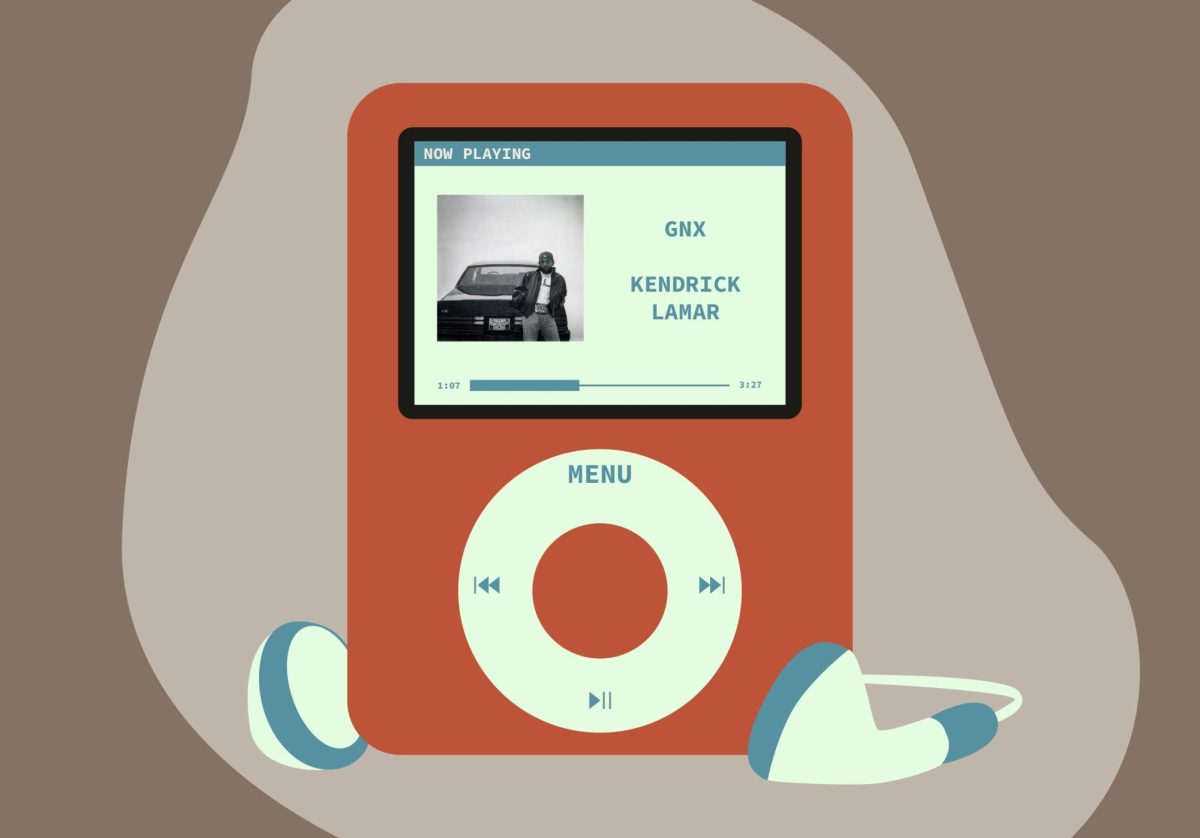Ryan Schreiber looks nothing like your average CEO.
At 35, he is stout, boyish and remarkably candid. He is at once calm and fidgety, constantly tossing his head to and fro as if heâÄôs looking for someone nearby. He looks more like a record store clerk.
ItâÄôs the second day of the Pitchfork Music Festival and the man who founded the Pitchfork media giant is sitting backstage, behind where Sun Airway is scheduled to perform.
âÄúI think when festivals get to a certain size you lose a lot of what makes them fun,âÄù Schreiber says as he takes a drag from his Parliament.
Born and raised in Minneapolis, Schreiber is the founder and head of what is arguably the most influential music startup of this generation. When it launched in 1995 âÄî shortly after Schreiber graduated from Hopkins High School âÄî Pitchfork was nothing but a microscopic blip lost in an endless sea of zines, alt-weeklies and commercial magazines.
But at the turn of the century, everything started to change. The emergence of the Internet had paved the way for an industry revolution of sorts. While the advent of file-sharing sent record labels and their once-lucrative empires spiraling into financial oblivion, big-name magazines saw their popularity waning as blogs and online publishing grew rampant. For once, consumers had both power and an alternative. And somewhere in the midst of it all, SchreiberâÄôs little-known home project was starting to find an audience.
âÄúI wanted more people to hear about these bands that were amazingly great and didnâÄôt get any kind of exposure from conventional channels like commercial radio or anything like that,âÄù Schreiber said.
Before the music festivals, before Schreiber was named one of Time magazineâÄôs most influential people in the world, Pitchfork was just another heavyweight in an ever-widening arena. But Schreiber had a vision. The site had carved out a niche for itself as an online hub for independent music; championing bands it felt had been dismissed or overlooked by mainstream bigwigs like Rolling Stone and Spin.
And as the siteâÄôs readership grew, so did its influence.
By the mid-aughts, the publication had earned a reputation for single-handedly âÄúmakingâÄù bands, occasionally turning what were once underground nobodies into indie sensations almost overnight. One of the most cited examples is writer David MooreâÄôs 9.7 review of Arcade FireâÄôs debut album âÄúFuneral.âÄù Shortly after the review was published in 2004, the bandâÄôs label, Merge Records, received so many order requests that âÄúFuneralâÄù went out of print for nearly a week.
But according to Schreiber, being influential wasnâÄôt ever a goal. He insists the result was simply incidental.
âÄúI think people who kept coming back to our site just found our reviews trustworthy. ItâÄôs not something we strove for. WeâÄôre not trying to make or break bands, itâÄôs just a byproduct,âÄù Schreiber said.
Of course itâÄôs hard to say definitively just how much clout Pitchfork actually has. While staff writer Marc Masters acknowledged the siteâÄôs influence, heâÄôs more skeptical, chalking some of the âÄúmake-or-breakâÄù claims up to hyperbole.
âÄúCertain bands get brought up as if Pitchfork made them. But almost all those times you can trace it back and see that other people were talking about them too,âÄù Masters said. âÄúThe idea that Pitchfork has ever been that single-handed with anything is a little bit of a myth.âÄù
Strong readership and influence aside, not everyone has always been so laudatory when it comes to Pitchfork. The publication, infamous for its verbose writing style and meticulous decimal-specific rating system (0.0-10.0), has also endured its fair share of mockery.
In 2007, the Onion published a piece in which Schreiber rates music as a whole, giving it a 6.8 out of 10. Even alt-comic David Cross took a shot in 2005. After being asked to submit a list of his favorite albums, Cross responded with a satirical piece titled âÄúAlbums to Listen to While Reading Overwrought Pitchfork Reviews,âÄù wherein he lavished sarcastic praise upon a litany of fictional indie bands.
Others have some more serious qualms. Jim DeRogatis, a Chicago-based music journalist and the author of âÄúLet it Blurt: The Life and Times of Lester Bangs,âÄù has followed Pitchfork from its inception. DeRogatis, who has worked as a music critic for more than two decades, has never been all that reserved about his sentiments regarding the publication. He has interviewed Schreiber twice before, and while he commends Pitchfork for its passion, he sometimes questions its legitimacy as a reliable source of sincere music criticism.
âÄúI think Ryan, from the beginning, has had a vision and heâÄôs been very, very good at crafting a brand,âÄù DeRogatis said. âÄúBut it bothers me. It bothers me to see any spouter of opinion be that monolithic.âÄù
But DeRogatisâÄô criticism doesnâÄôt stop there. When Pitchfork.tv âÄî an online channel that features original video content from indie rockâÄôs rising stars âÄî launched in 2008, DeRogatis interviewed Schreiber, addressing concerns about the siteâÄôs promotional slant and the potential conflicts of interest that could arise.
âÄúI have some problems with Pitchfork going to a band and saying, âÄòWill you give us free video content or will you play this free concert for us?âÄôâÄù DeRogatis said. âÄúJournalists should know that the appearance of a conflict of interest is as troublesome as an actual conflict of interest.âÄù
DeRogatis has similar concerns about PitchforkâÄôs annual three-day festival, which, for its sixth consecutive year, took place last weekend in ChicagoâÄôs Union Park.
âÄúItâÄôs like, does [Pitchfork] love Bon Iver because Bon Iver is headlining Pitchfork in Paris? Or do they love Bon Iver because they love Bon Iver?âÄù DeRogatis said. âÄúTo me, journalism and criticism are sacred but thereâÄôs a separation of church and state.âÄù
When asked to comment, Schreiber needed little time to sort out his thoughts on the matter. He explained that while he understands the argument, he doesnâÄôt feel as if it makes all that much sense.
âÄúWe booked [the bands] because we like them. WeâÄôre not going to book them if we donâÄôt like them. It would be so insanely unethical and gross and thereâÄôs not even any point to it,âÄù Schreiber said. âÄúI donâÄôt think it would result in any significant difference in what our bills look like. ItâÄôs like any other music festival. You pay them to play. ThatâÄôs what it is,âÄù Schreiber said.
While Pitchfork may be the premier music publication of our generation, it is still fragile. If thereâÄôs anything we can learn from SchreiberâÄôs indie empire, itâÄôs that no industry, no matter how old or strong, is immune to the incomparable reach of the World Wide Web.
As record label goliaths collapse beneath their own weight and the fine line between indie and the mainstream continues to be blurred, an entirely new generation of bright-eyed Ryan Schreibers and Mark Zuckerbergs are waiting on the other end.
Whether theyâÄôre toiling away in their parentsâÄô basement or writing algorithms on their dorm-room window doesnâÄôt matter. What matters is âÄî like their predecessors âÄî theyâÄôre full of ideas. And that, along with a little passion and luck, is all it really seems to take.














